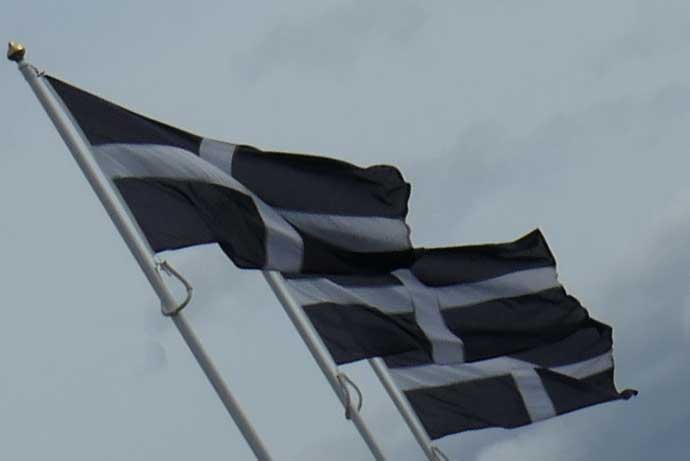My long list of options includes: to write something of my own (actually, that seems to be the least popular option for most people); to comment at length on somebody else's post (but then I would be dismissed as a "troll" almost regardless of what I said); to share a post by somebody in (or commenting on) politics; to share a headline written to be shared by a populist news outlet (ah, that's the one); to put some kind of filter over my profile picture, perhaps a rainbow flag or a statement of voting intention; to click on "Like" and choose the emoji that most matches my mood; to raise an army and march on London - no, wait. Scrub that last one. The miracle of social media, and the curse, is that we're simultaneously all riled up by it, and pacified.
Those big global companies are the overmighty subjects of our day, I suppose. They're too powerful, too rich, and their attention to our details has a Big Brother-ish quality. But do they actually make anything worse? They only matter because we use them, and we use them because (duh) they're useful. We resent them because they're there. It's a while since I read the book*, but if I remember rightly, Big Brother was the figurehead of a government, wasn't he? He'd be Little Brother now, given globalisation, capitalism, the internet and how we use it?
I wonder if politics is today's opium of the people, in that we still head up our resentments with political figures, despite knowing - we do know, don't we? - that they're so beset by just about everything - relentless media scrutiny, shifting public opinion, fractious parties, political rivals, events - that their power is fragile at best. Real power is to be found behind the throne (holding the knife) or somewhere further away than that. A political leader may have the power to persuade, but it's measured in terms of who will back him (I thought about putting "her", but the point's made already).
To share a headline about politics, or to signal a voting intention, perhaps these days even to attend a political rally, is to reach back into a comfortable pre-globalisation past where politics mattered; where the protests we remember have that comforting simplicity of success. We want that seriousness, ideally served simultaneously with that sense of vindication. We don't remember the complexities of the political past; we only remember the successful causes all telescoped together with their outcomes. But I do wonder whether those are the real lessons of history.
*George Orwell, of course. Nineteen Eighty-Four, first published in 1949 by Secker & Warburg.
Key detail being that you can judge the rightness of the answer by putting the ox on the weighing scales after the vote. That's not possible in politics, because the post-vote road not travelled isn't there to be compared with reality. It's vanished, and that set of policies will never be proved right or wrong (or somewhere in between). But the point stands that collective wisdom gets wiser as the collective gets bigger. So to speak.
If turnout in an election is high, we can take the result as the "right answer". This is nearly self-evident, in that more of the people voting to express the will of the people will get closer to the will of - but let's not go down that spiral. High turnout equals right answer. Deliberate abstentions - no. Not going there.
Check the statistics, and you'll find that there was a high turnout for the EU referendum and then another high turnout for the 2017 general election. We could take it, then, that both gave us "right answers". On the EU - a balanced result but with a slight preference for leaving (a vote for a soft Brexit, in today's terms, which suggests that Labour are reading the tea-leaves more accurately than the Conservatives). In the general election, a government without a majority and a credible opposition not quite able to take power.
"Right answers" in politics don't necessarily take the form of a binary either/or. In the US, the presidential election rejected the former political establishment, but gave us a president who has turned out not to be able to do very much. In France - established parties rejected; Macron elected. It will be interesting to watch what happens to Mutti on 24th September.

